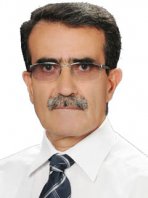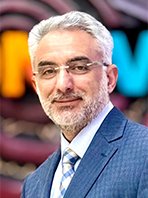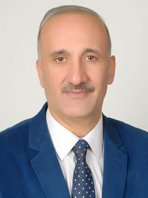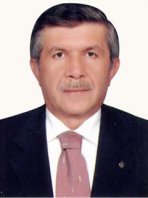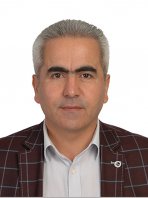İnsan ruhlar âleminden dünyaya, buradan baki hayata devam eden bir yolcudur.
Bu yolculukta değişmeyen ruhun değişen binekleri vardır.
Vücudumuz, malımız, mülkümüz, makamımız v.b. bütün fani şeyler ruhumuzu gelişim yolculuğunda destekleyen veya engelleyen faktörler olabilir.
Bu tamamen bizim onlara yüklediğimiz misyonla alakalıdır.
İnsan hayatının merkezine ruhunu koyar ve her eşyaya ruh penceresinden bakarsa işler değişir.
Dünyayı geçici bir imtihan salonu olarak gören ve ebedi hayata odaklanan bir ruhun bakış açısında çevresindeki her şey sadece ve sadece bir vesiledir.
Beden, evlat, mal, makam, şan, şöhret, para, pul, güzellik v.s.
"Kadınlar, oğullar, altın ve gümüşten birikmiş hazineler, soylu atlar, sığırlar, arazilere yönelik tutku ve dünyevi zevkler insanoğlu için çekici kılınmıştır. Bütün bunlar dünya hayatının geçimliğidir. Oysa asıl varılacak (ve temelli kalınacak) güzel yer Allah katındadır.” Al-i İmran, 3/14.
İnsan ruhu binek olarak kullandığı bedeni ve onun ihtiyacı olan eşyayı bir vesile olarak görmeli ve derin suların nehir yatağında aktığı gibi doğal, sakin ve verimi bir hayat sürmelidir.
O nehirler ki çevrelerine hayat bahşederek akarlar…
Bu akışa işaret olarak Yüce Allah güneşin hareketinden bahsederken bize ders niteliğinde "tecri/akar” tabirini kullanır:
"Güneş de kendi yörüngesinde akıp gitmektedir. Bu, mutlak güç sahibi, hakkıyla bilen Allah'ın takdiri (düzenlemesi) dir." Yasin, 36/38.
İnsan ruhu bedenle yolculuğunu iyi bir sürücünün araç kullanması gibi sürdürmelidir.
İyi sürücü araba kullanırken istikrarlı bir akış tutturur freni ve kornayı çok kullanmaz.
İyi sürücü hedefine odaklanır (ahret hayatı), dikkatini yoluna verir, önüne bakar.
İyi sürücü viteslerin hakkını verir, araba devrini aldıktan sonra diğer vitese atar;
Ne yığdırır, ne de bağırtır arabayı.
Hem kendi rahat eder, hem çevresi…
Bu sebeple bizim kültürümüzde "ahretlik” başta dostluklar olmak üzere bütün kalıcı değerler için kullanılan çok kıymetli bir kavramdır.
Aksi halde ahreti ihmal ederek sadece dünyaya odaklanmak ruh için en büyük azaptır ve hayatının sonunda o dünyalık yaşayanlar şu şiirin muhatabı olacaktır.
"Ne kendi eyledi rahat, ne âlem buldu huzur,
Yıkılıp gitti cihandan, dayansın ehli kubur”
Do not pile up or shout.
Man is a traveler who continues from the realm of spirits to the world, from here to the living.
In this journey, the unchanging spirit has changing mounts.
Our body, our property, our property, our office, etc. All mortal things can be factors that support or hinder our souls on its journey of development.
This is entirely related to the mission we have assigned to them.
If a person puts his soul at the center of his life and looks at every thing from the perspective of the soul, things will change.
From the perspective of a soul who sees the world as a temporary testing room and focuses on eternal life, everything around it is only an occasion.
Body, son, property, rank, glory, fame, money, stamp, beauty etc.
"Women, sons, hoards of gold and silver, noble horses, cattle, passion for land and worldly pleasures have been made attractive to mankind. All these are the livelihood of the worldly life. However, the best place to reach (and stay grounded in) is with Allah.” Al-i Imran, 3/14.
The human soul should see the body it uses as a mount and the things it needs as a means, and should lead a natural, calm and productive life like deep waters flow in a river bed.
Those rivers that flow by giving life to their surroundings...
As an indication of this flow, Almighty Allah uses the phrase "seclusion/flows" as a lesson to us when talking about the movement of the sun:
"The sun also flows in its own orbit. This is the will of Allah, who has absolute power and knows well.” Yasin, 36/38.
The human soul should continue its journey with the body like a good driver drives a car.
A good driver maintains a stable flow while driving and does not use the brake and horn much.
A good driver focuses on his destination (life of the afterlife), pays attention to the road, looks ahead.
A good driver gives the gears justice, after the car takes its revolution, it shifts to the other gear;
It neither crashes nor yells the car.
He will be comfortable both himself and his surroundings…
For this reason, in our culture, "heroism” is a very valuable concept used for all permanent values, especially friendships.
Otherwise, neglecting the hereafter and focusing only on the world is the greatest torment for the soul, and at the end of their life those who live in that world will be the addressee of this poem.
"Neither did he make himself comfortable, nor did he find peace in the world,
Destroyed from the world, may the people of the world endure"




